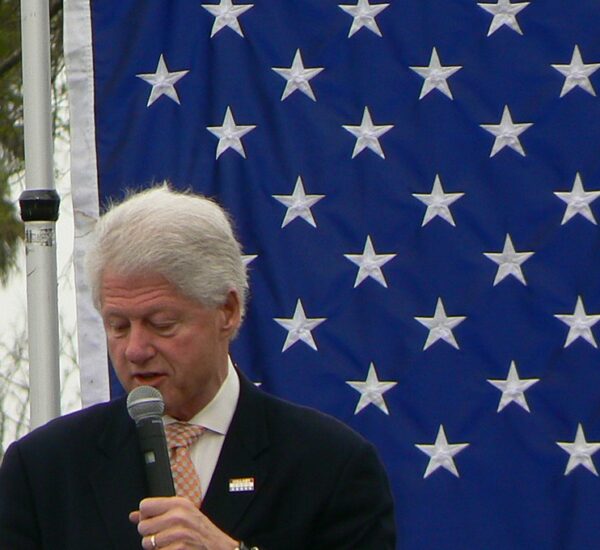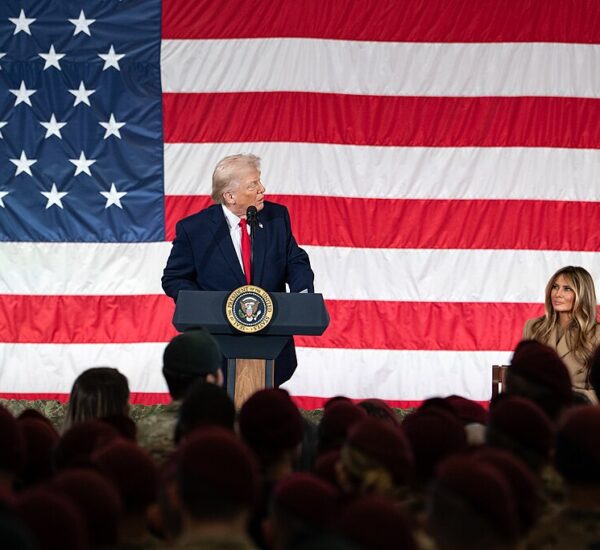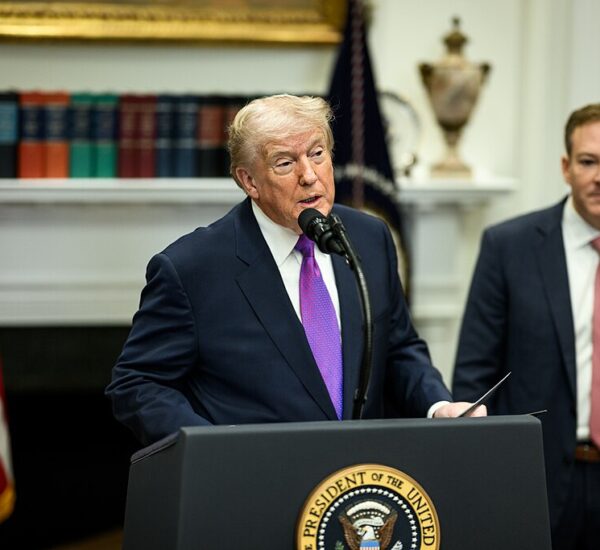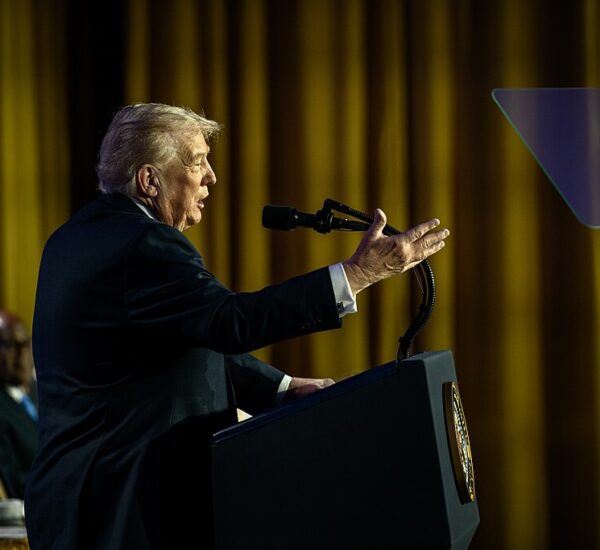Democrats Banning Donors?
Democrats are launching a fresh political assault on President Donald Trump—this time targeting his privately funded, tax-free, 90,000-square-foot White House ballroom, a project widely praised by conservatives for its historic scale and zero burden on taxpayers.
Sen. Elizabeth Warren, D-Mass., and Rep. Robert Garcia, D-Calif., introduced the “Stop Ballroom Bribery Act” on Tuesday, a sweeping proposal aimed at restricting private donations for construction on federal buildings used by the president or vice president. The bill directly targets Trump’s $300 million ballroom, built entirely through voluntary contributions from supporters, major corporations, and philanthropic groups.
Trump’s Ballroom Costs Taxpayers Nothing—But Democrats Want It Stopped
President Trump raised nearly $350 million for the project, ensuring Americans pay nothing. According to the White House, any additional funds may support future improvements to the People’s House—including discussions around a potential “Arc de Trump” in Washington, D.C.
Despite these benefits, Democrats are accusing the ballroom effort of creating a “pay-to-play” atmosphere. The White House immediately pushed back, calling the bill pure political retaliation.
A spokesperson told Newsweek: “Critics alleging fake conflicts would complain even more if taxpayers were paying the bill. Donors are helping improve the People’s House for generations.”
What Democrats Want to Ban
The Warren-Garcia bill would impose major new restrictions on private giving, including:
- A full ban on anonymous donations
- A prohibition on donors with pending federal contracts or litigation
- A ban on presidents and their families soliciting private funds
- A two-year lobbying blackout for contributors
- Expanded enforcement powers for the Justice Department and state attorneys general
Conservatives argue this would give Democrat officials tremendous power to harass Republican donors, especially during a presidential election cycle.
Bill Going Nowhere in GOP-Controlled Congress
With Republicans holding both the House and Senate, the legislation faces near-certain defeat. Even Democrat strategists admit the bill is symbolic, designed to score political points rather than stop the ballroom, which is already rising where the old East Wing once stood.
Conservatives also point to the double standard: Democrats didn’t propose national donation restrictions when major Clinton donors received Lincoln Bedroom perks in the 1990s.
Corporate Donors Fully Legal and Longstanding
A CBS News report noted that several major corporations contributing to the project work with well-known firms and other household names attended a White House donor dinner.
Lobbying records confirm these firms helped connect donors with the fundraising effort.
No one is accused of wrongdoing.
Corporate participation in White House improvement projects is a standard bipartisan practice.
Democrats Target Trump Allies—But Only Now
Democrat lawmakers have sent formal inquiry letters to former Trump Chief of Staff Reince Priebus and lobbyists Brian Ballard and Jeff Miller, pressing them for details about how donors were contacted.
Republicans counter that Democrats never cared about “donor transparency” until Trump began a major renovation that Americans overwhelmingly support.
White House Says Claims of ‘Ethics Concerns’ Are Pure Politics
Mainstream media outlets continue quoting “ethics critics” who say the ballroom raises conflict-of-interest questions.
Trump officials call this political theater, designed to undermine a successful and popular project.
The administration notes that the ballroom will dramatically expand the White House’s hosting capacity while relying exclusively on private funding—an approach that older, fiscally conservative Americans strongly support.






